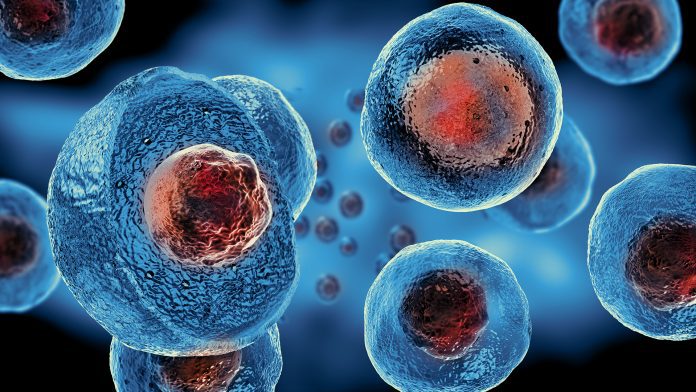
A new study by researchers at University College London and the University of Sheffield has shown the potential of stem cell therapy to treat those with Hirschsprung disease.
Hirschsprung disease is a rare condition that causes missing nerve cells in the large intestine. As a result, the intestine does not contract and cannot move stool, which can be blocked. This causes constipation and sometimes can lead to a serious bowel infection called enterocolitis.
Around one in 5000 babies are born with Hirschsprung disease. The condition is usually picked up after birth and treated with surgery however, patients often suffer lifelong symptoms, with multiple surgeries required.
Researchers have explored whether stem cell therapy could improve intestine functionality in patients with Hirschsprung disease. The findings are published in Gut.
Using stem cell therapy to replace nerve cells
Previous research has explored using stem cell therapy to generate nerve cell precursors to replace the missing nerves in the intestine of those with Hirschsprung disease.
Researchers at the University of Sheffield focused on the production and analysis of nerve precursors from stem cells. These were shipped to the UCL team, who prepared the patient’s gut tissue, undertook the transplantation and maintenance of the tissue and then tested the function of the tissue segments.
The tissue samples were donated by GOSH patients with Hirschsprung disease as part of their routine treatment. They were then transplanted with stem cell-derived nerve cell precursors, which then developed into the crucial nerve cells in gut tissue.
Improved functionality in patients with Hirschsprung disease
The researchers found that the transplanted gut samples showed an increased ability to contract compared to control tissue suggesting enhanced functionality.
Principal Investigator, Dr Conor McCann (UCL Great Ormond Street Institute of Child Health) said: “This study is a real breakthrough in our cell therapy work for Hirschsprung disease. It really shows the benefit of bringing the expertise of different groups together, which will hopefully benefit children and adults living with Hirschsprung disease in the future.”
Dr Anestis Tsakiridis, Principal Investigator at the University of Sheffield, said: “This has been a fantastic collaboration, led by two talented early career scientists, Dr Ben Jevans and Fay Cooper. Our findings have laid the foundations for the future development of a cell therapy against Hirschsprung disease, and we will continue our efforts to bring this to the clinic in the next few years”.
The results demonstrate for the first time that stem cell therapy could improve intestine functionality in individuals with Hirschsprung disease and lead to improved symptoms and better outcomes.









